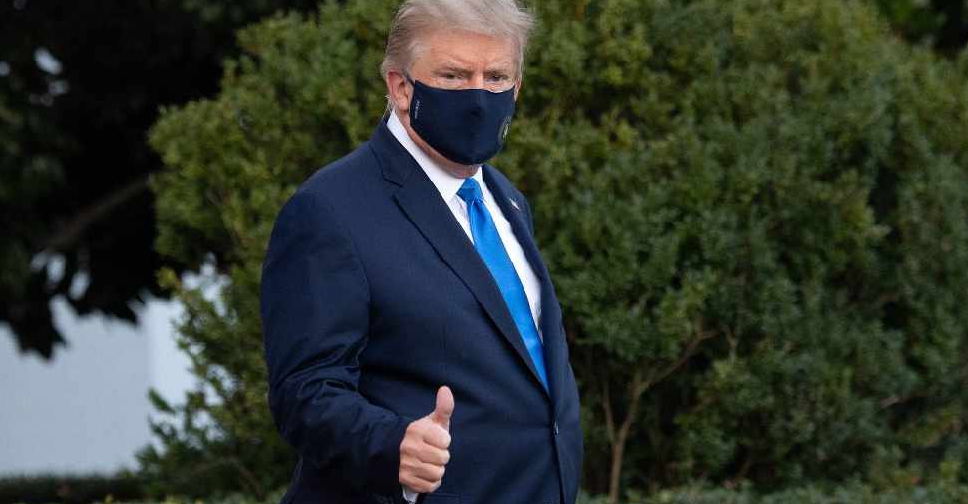
US President Donald Trump has been moved into a military hospital for treatment after testing positive for COVID-19.
Roughly 17 hours after he made his diagnosis public, Trump walked slowly from the White House to a waiting helicopter to be taken to Walter Reed National Military Medical Center in Bethesda, Maryland. He wore a mask and business suit and did not speak to reporters.
"I think I'm doing very well, but we're going to make sure that things work out," Trump said in a brief video message posted on Twitter. Early on Friday, he had tweeted that he and the first lady, Melania Trump, had contracted the virus.
Trump will work in a special suite at the hospital for the next few days as a precautionary measure, White House press secretary Kayleigh McEnany said. Online video showed a small group of Trump supporters outside Walter Reed late on Friday waving Trump 2020 flags, most not wearing masks.
Trump, 74, has a mild fever, according to a source familiar with the matter. White House doctor Sean P. Conley said late on Friday that Trump was doing very well, did not need supplemental oxygen, and had received a first dose of Remdesivir, an intravenous antiviral drug sold by Gilead Sciences Inc that has been shown to shorten hospital stays.
In a tweet late on Friday, the president wrote: "Going well, I think! Thank you to all. LOVE!!!"
The diagnosis was the latest setback for the Republican president, who is trailing Democratic rival Joe Biden in opinion polls ahead of the November 3 presidential election.
Trump has played down the threat of the coronavirus pandemic from the outset, even as the disease has killed more than 200,000 Americans and hammered the US economy.
A number of other prominent Republicans also tested positive on Friday, including former White House senior adviser Kellyanne Conway and Republican senators Mike Lee and Thom Tillis.
Vice President Mike Pence, who would take over presidential duties if Trump became severely ill, tested negative, a spokesman said. The former Indiana governor, 61, is working from his own residence several miles from the White House.
Trump is at high risk because of his age and weight. He has remained in apparent good health during his time in office but is not known to exercise regularly or to follow a healthy diet.
Conley said earlier on Friday that Trump has received an experimental treatment, Regeneron's REGN-COV2, one of several experimental COVID-19 drugs known as monoclonal antibodies, which are used for treating a wide range of illnesses.
Trump is also taking zinc, Vitamin D, famotidine, melatonin and aspirin, Conley said.





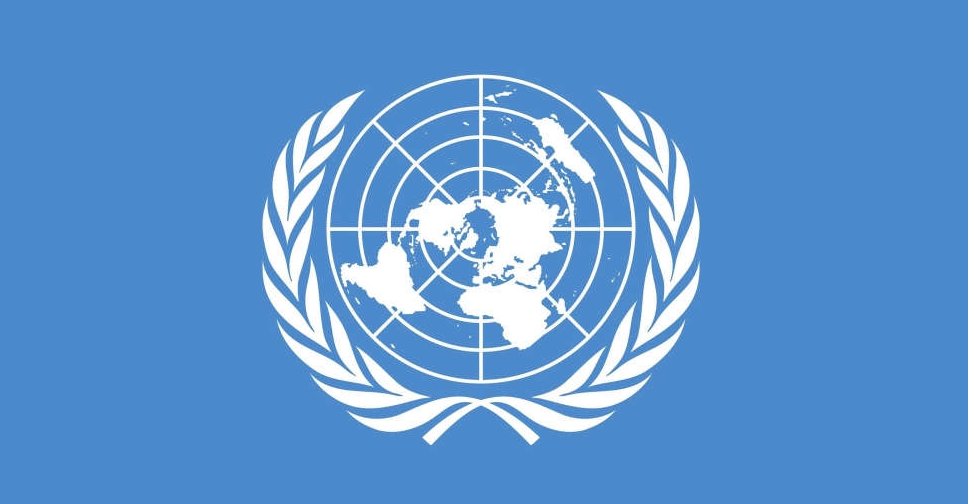 UN warns funding cuts threaten vital aid
UN warns funding cuts threaten vital aid
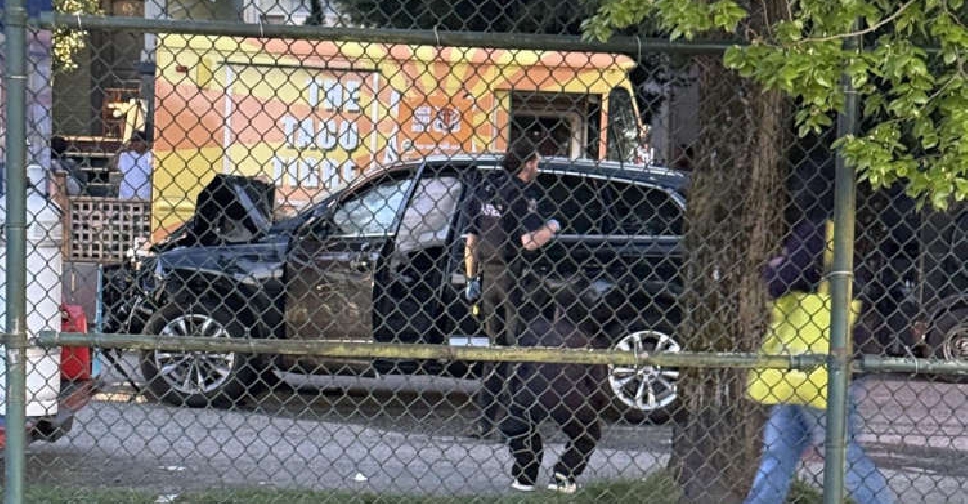 Multiple dead in Vancouver after vehicle plows into street festival
Multiple dead in Vancouver after vehicle plows into street festival
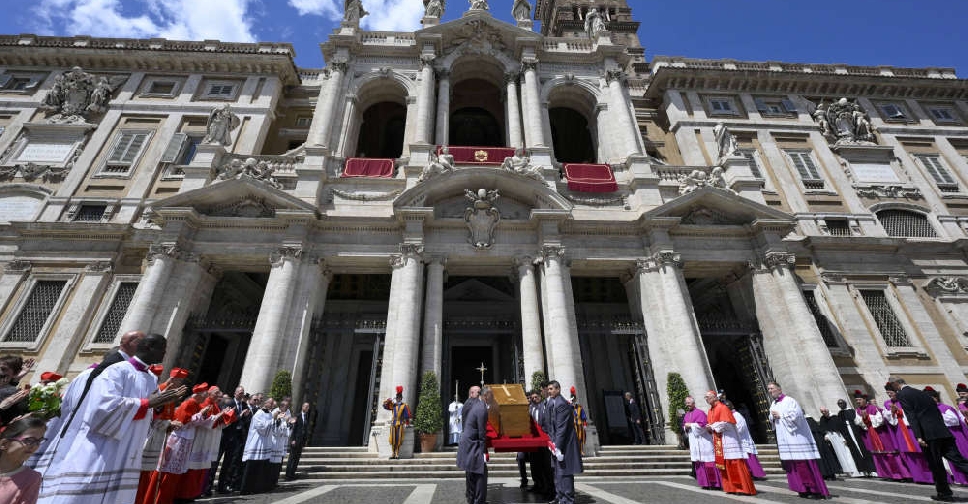 Rome and the world bid farewell to Pope Francis
Rome and the world bid farewell to Pope Francis
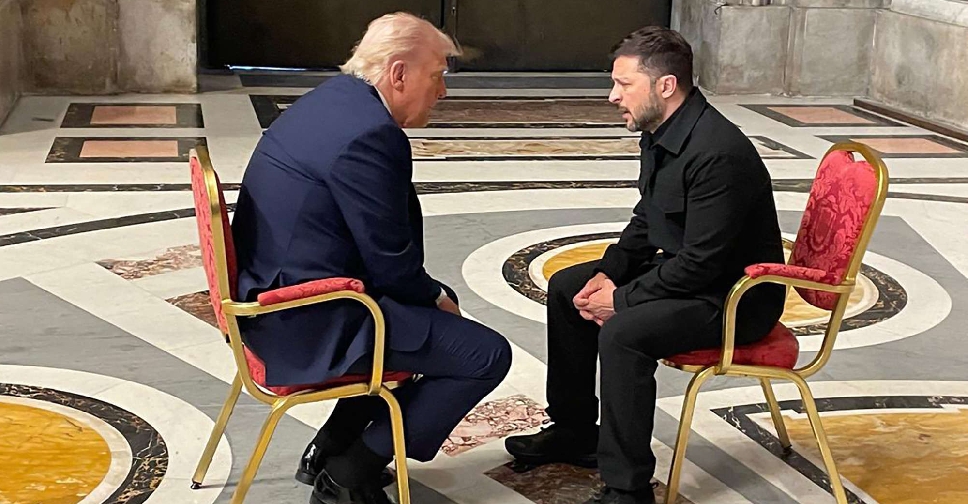 Trump, Zelenskyy meet in Vatican basilica to seek Ukraine peace
Trump, Zelenskyy meet in Vatican basilica to seek Ukraine peace

